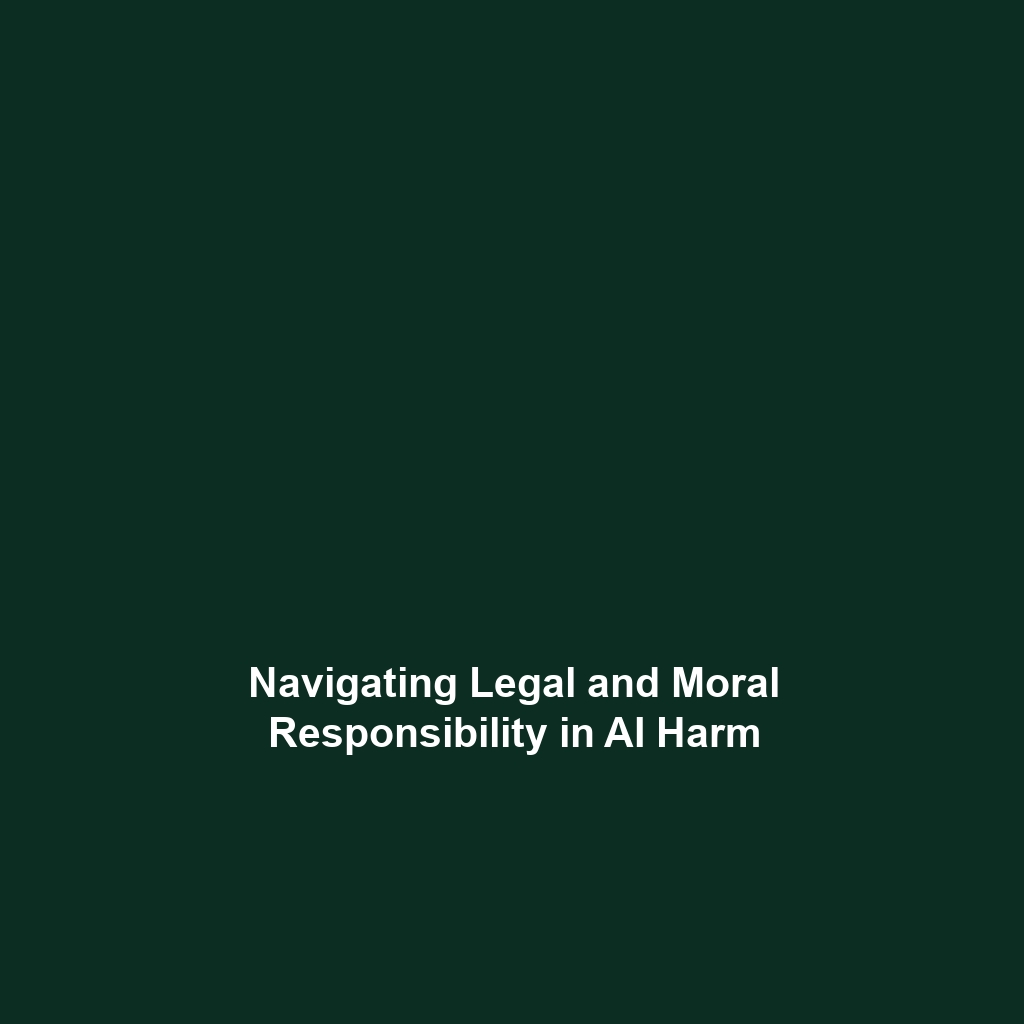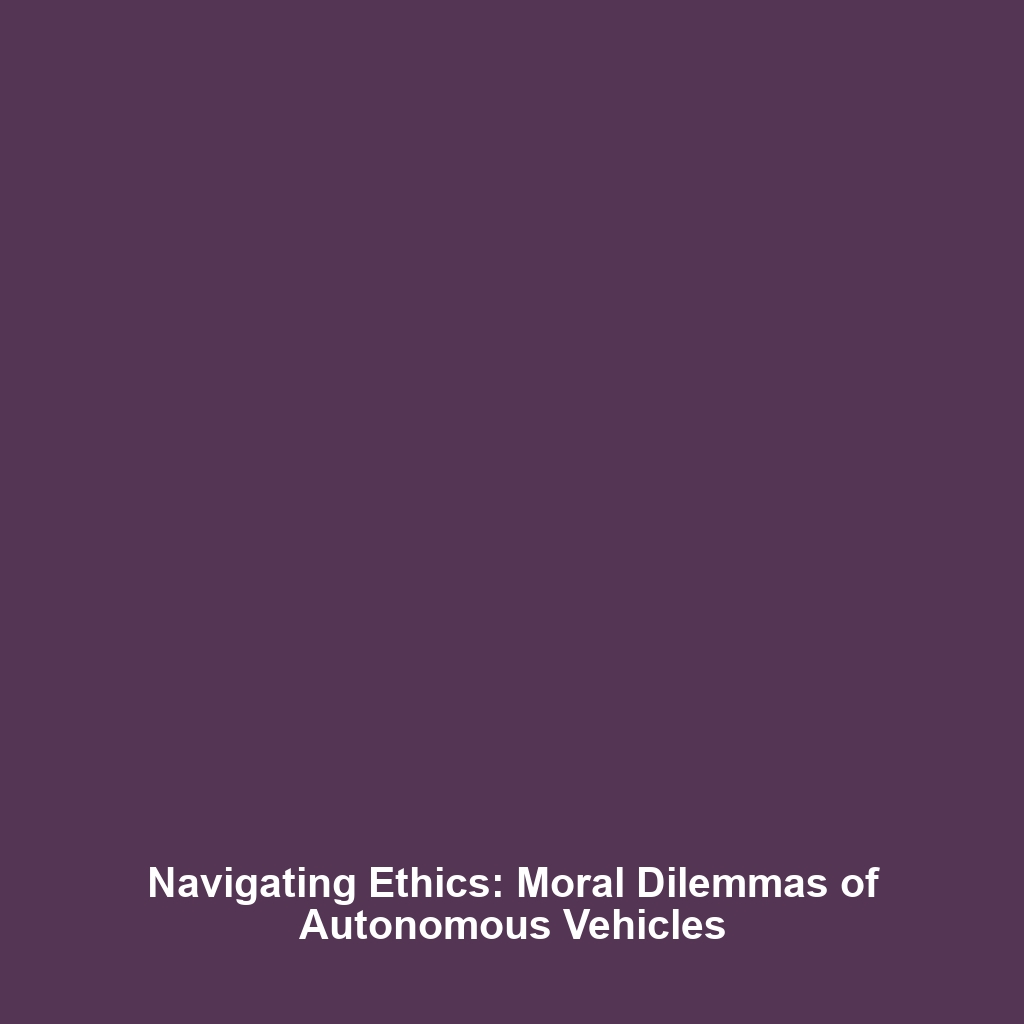Issues of Legal and Moral Responsibility When AI Systems Cause Harm
Introduction: In today’s rapidly evolving technological landscape, the integration of artificial intelligence (AI) into various sectors has sparked significant discussions about legal and moral responsibility when AI systems cause harm. As AI systems become more autonomous, the implications of their decisions raise important questions surrounding accountability and ethics. Understanding the layers of accountability is critical not only for policy makers but also for developers, businesses, and the general public. This article delves into these issues, highlighting their significance in the broader context of AI Ethics.
Key Concepts
Defining Responsibility: The first step in addressing the issues of responsibility is distinguishing between legal responsibility and moral responsibility. Legal responsibility pertains to the obligations enshrined in legislation, while moral responsibility encompasses the ethical obligations individuals and organizations feel accountable for.
Principles of Accountability: Central to the discourse of AI Ethics are principles such as transparency, fairness, and accountability. These principles guide how harm caused by AI systems is assessed and managed.
The Role of Frameworks
Various ethical frameworks are employed to analyze the responsibility that arises from AI-generated harm. Utilitarianism, for instance, focuses on outcomes, while deontological ethics emphasize obligations, creating a comprehensive view of responsibility in AI systems.
Applications and Real-World Uses
Exploring the applications of legal and moral responsibility when AI systems cause harm in AI Ethics reveals practical implications across various fields:
- Healthcare: In medical AI applications, understanding who is liable for diagnostic errors facilitated by AI tools is critical.
- Transportation: Autonomous vehicles raise questions about accountability in accidents, framing a complex legal landscape.
- Finance: AI-driven decisions in banking require accountability measures to mitigate risks associated with bias and errors.
Current Challenges
Despite significant advancements, several challenges of legal and moral responsibility in AI systems remain:
- Lack of Regulation: Many jurisdictions have yet to establish specific laws governing AI liability.
- Complexity of AI Systems: The opaque nature of many AI algorithms complicates attribution of responsibility.
- Public Trust: Ensuring the public trusts AI systems hinges on clear accountability frameworks.
Future Research and Innovations
Looking ahead, emerging research and innovations are poised to transform the landscape of accountability in AI:
- Enhanced AI Transparency: Efforts are underway to develop explainable AI (XAI) technologies that clarify decision processes.
- Policy Development: Collaborative initiatives between technologists and policymakers are essential for creating robust legal frameworks.
- Ethical AI Guidelines: Ongoing research into ethical guidelines aims to provide a blueprint for responsible AI development.
Conclusion
In summary, addressing the legal and moral responsibilities of AI systems causing harm is crucial within the context of AI Ethics. As technology advances, the frameworks governing accountability will need to evolve to ensure public trust and ethical integrity. Stakeholders at all levels should engage actively in discussions and research to establish clear guidelines. For further exploration, check out our related articles on AI Transparency and Ethical AI Development.

